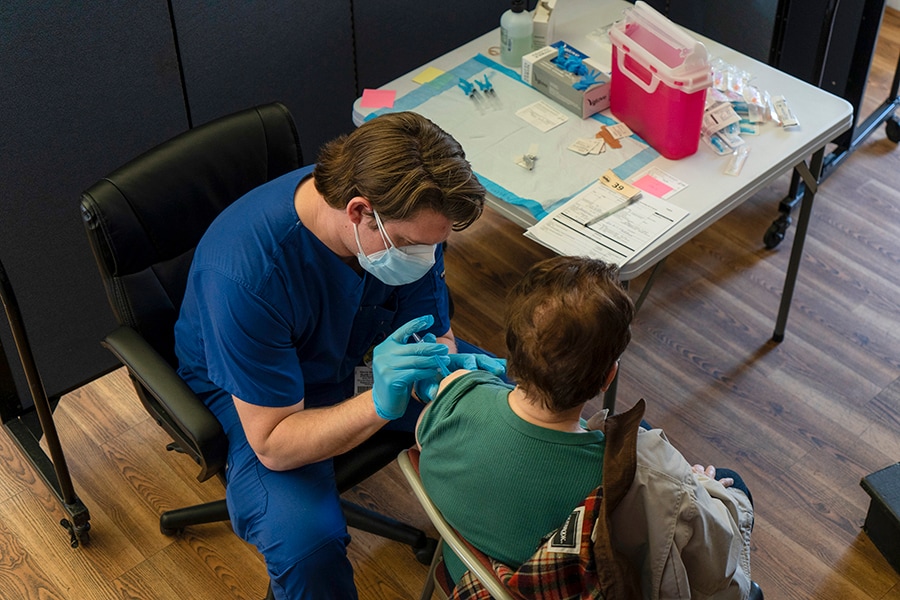
A K-Shaped recovery, this time on a global scale
While many wealthy nations are poised for a major economic expansion this year, other nations' struggles could reverse decades of progress in fighting poverty
 A health care worker administers a Moderna vaccine in the Bronx, April 5, 2021. The International Monetary Fund warned on Tuesday, April 6, that an uneven rollout of vaccines poses a threat to the recovery of the global economy, as the fortunes of rich and poor countries diverge.
A health care worker administers a Moderna vaccine in the Bronx, April 5, 2021. The International Monetary Fund warned on Tuesday, April 6, that an uneven rollout of vaccines poses a threat to the recovery of the global economy, as the fortunes of rich and poor countries diverge.
Image: James Estrin/The New York Times
WASHINGTON — The global economy is rebounding from the coronavirus pandemic faster than previously expected, largely thanks to the strength of the United States. But the International Monetary Fund warned on Tuesday that an uneven rollout of vaccines posed a threat to the recovery, as the fortunes of rich and poor countries diverge.
The global dynamic echoes the “K-shaped” recoveries that are playing out worldwide. While many wealthy nations are poised for a major economic expansion this year, other nations’ struggles could reverse decades of progress in fighting poverty. Top international economic officials warned this week that this divergence, which is being amplified by sluggish deployment of vaccines in developing countries, is a threat to stability and long-term growth.
“Economic fortunes within countries and across countries are diverging dangerously,” Kristalina Georgieva, managing director of the IMF, said at a panel discussion Tuesday during the annual spring meetings of the fund and the World Bank.
This week, Treasury Secretary Janet Yellen emphasized that point, saying in a speech that the inability of low- and middle-income countries to invest in robust inoculation programs could result in “a deeper and longer-lasting crisis, with mounting problems of indebtedness, more entrenched poverty and growing inequality.”
Fears over rising inequality were underscored on Tuesday as the IMF said it was upgrading its global growth forecast for the year thanks to vaccinations of hundreds of millions of people, efforts that are expected to help fuel a sharp economic rebound. It now expects the global economy to expand by 6% this year, up from its previous projection of 5.5%, after a contraction of 3.3% in 2020.
©2019 New York Times News Service




